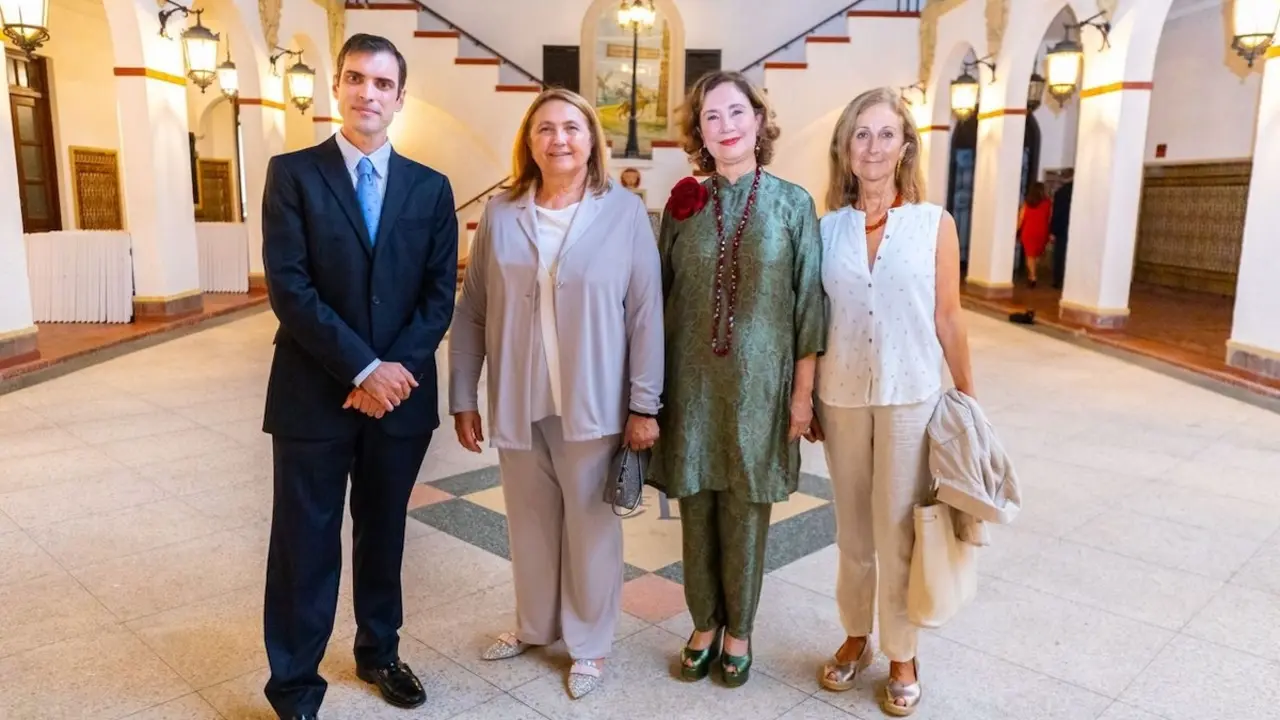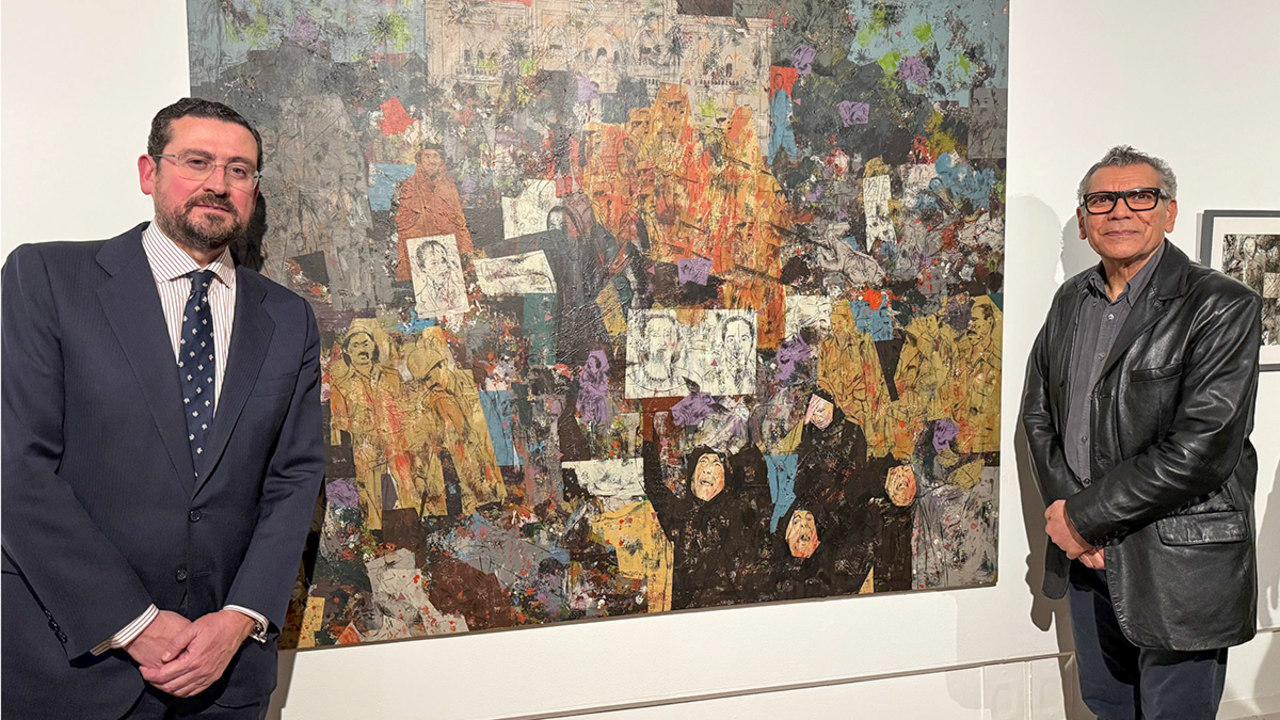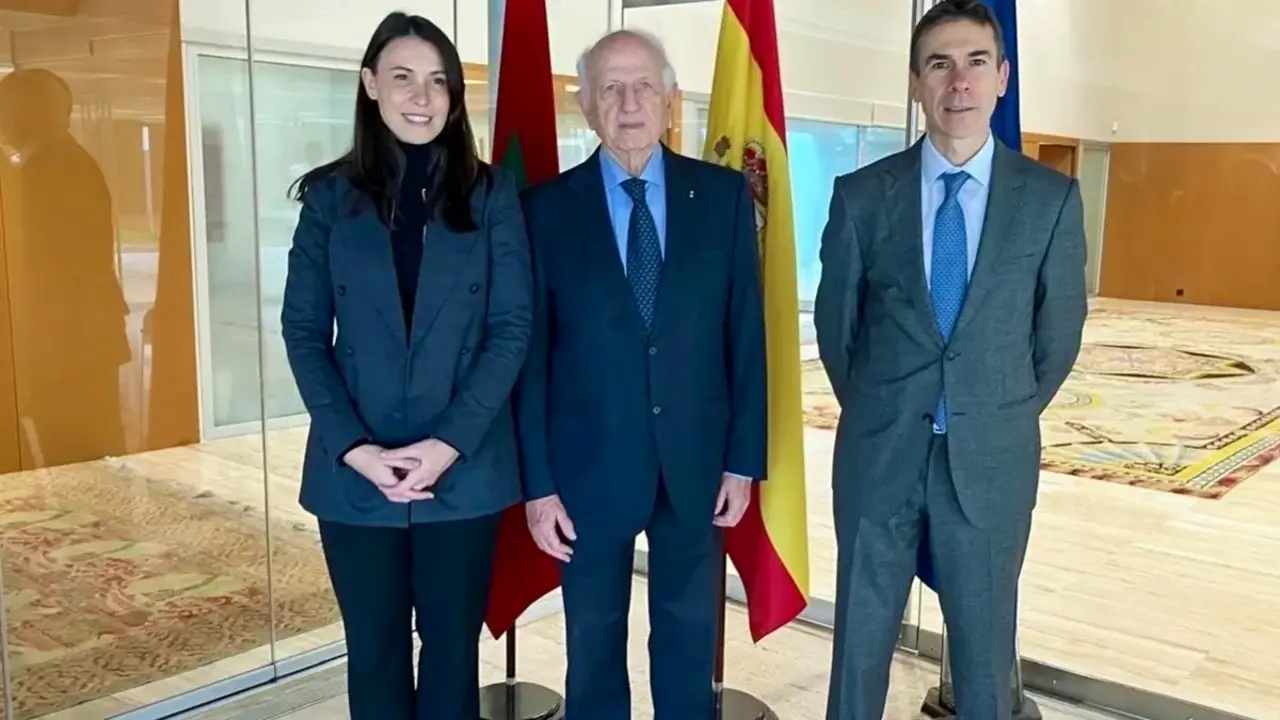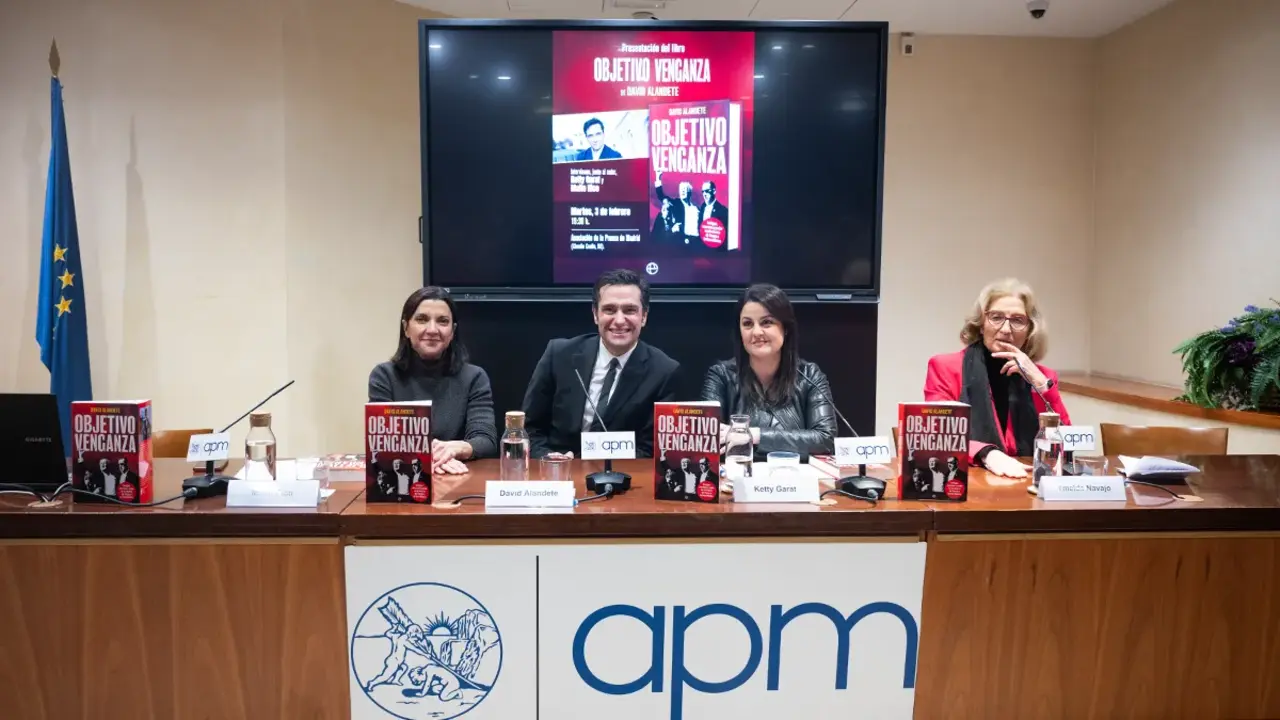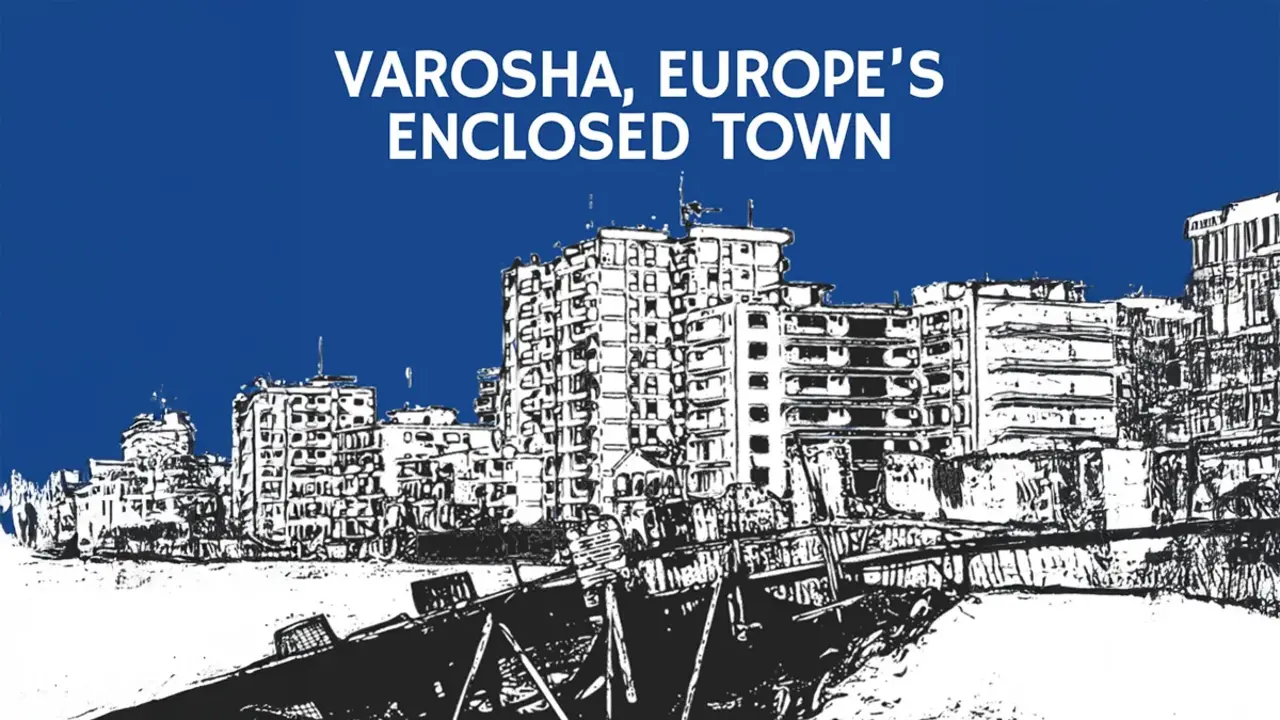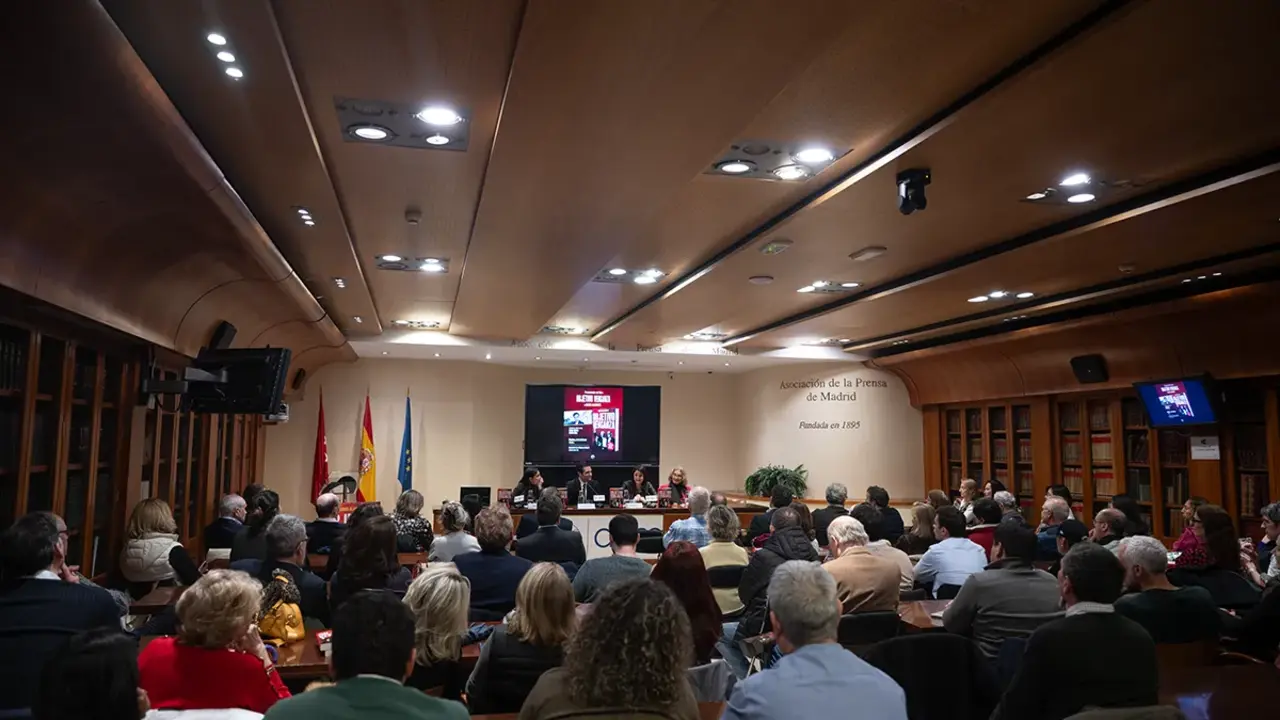Tunisia: the long road to transition

In the Arab world, we have found in the last decade a movement of struggle for democracy, fundamental human rights, human freedoms and many other demands. Tunisia is a clear example of this struggle and the achievement of democracy.
It has faced political, social and economic challenges and left autocracy behind; they are now citizens, not subjects. Elections are held regularly with an active parliament and there is room for different ideological thinking. A constitution has also been created, and the population enjoys basic democratic freedoms.
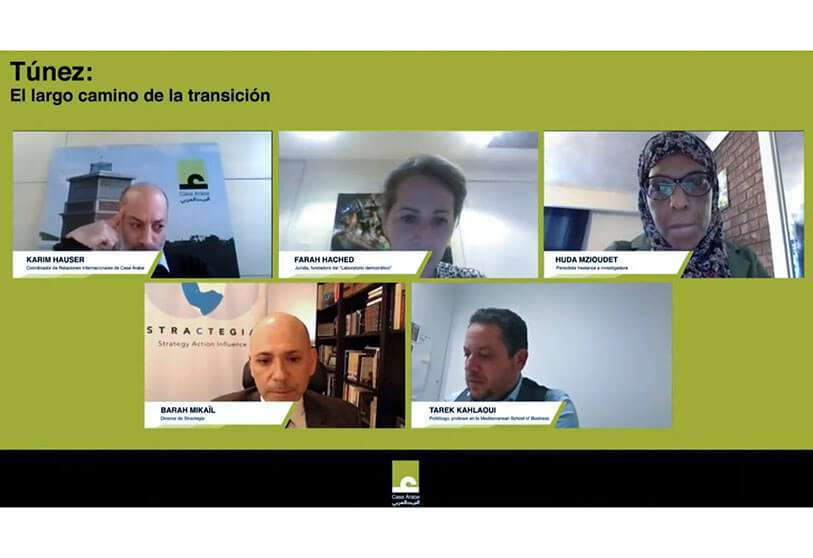
However, the country is plunged into deep governmental instability and the existence of disagreements between the president and the prime minister.
Casa Árabe, in collaboration with Stractegia, has analysed the case of Tunisia with three specialists on the country: Farah Hached, lawyer and founder of the "Democratic Laboratory", Huda Mzioudet, journalist and independent researcher, and Tarek Kahlaoui, political scientist, professor at the Mediterranean Business School and researcher at Stractegia. The event was presented by Karim Hauser, international relations coordinator of Casa Árabe, and moderated by Barah Mikaïl, director of Stractegia.
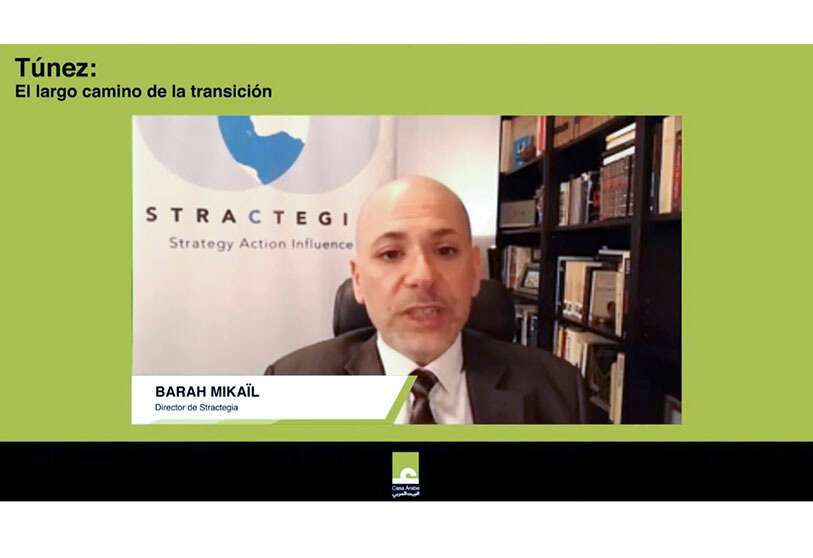
The Constitution is also an achievement of Tunisian democracy since it establishes a semi-parliamentary regime, i.e. a regime in which the Parliament is strong and in which the President of the Republic still has certain prerogatives and political force. It is a reaction to the former autocratic and presidential regime.
Freedom of speech is restricted by prison sentences in the penal code. In Tunisia there is a so-called "moral" offence, which exists in other codes and has disappeared in others. Often it involves religion or a caricature of religion. There is confusion here between insulting religion and criticising political Islam.
On this subject, Farah Hached added that "in Tunisia, as in other countries in the region, homosexuality is punished and a homosexual can go to prison. There are even tests to find out if they are homosexual or not. And this is unacceptable in a democracy.
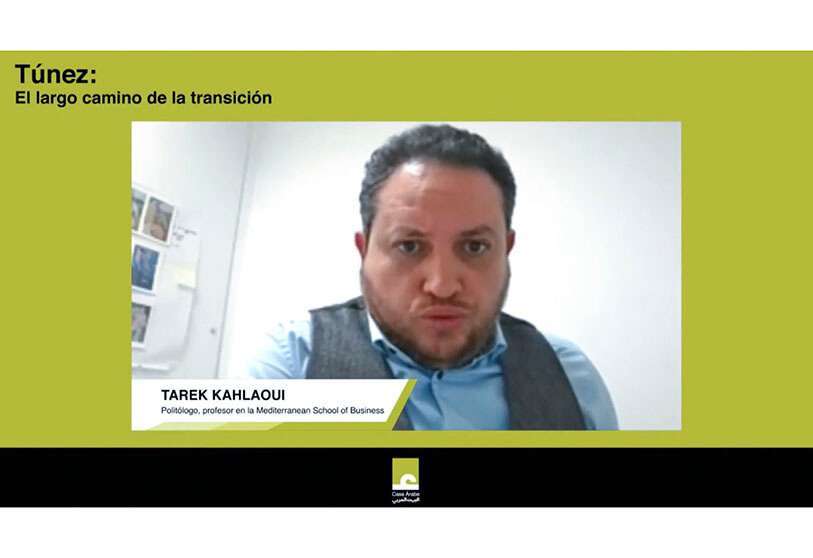
The Tunisian regime is divided between the national president and the speaker of the Parliamentary Assembly, with economic and social problems as well. This crisis is said to be the most difficult the young Tunisian democracy has faced since 2011.
Tarek Kahlaoui mentioned that 'the wide gap between democratic political changes and a socio-economic status quo that acquires overwhelming power in conservative social forces gives rise to a worrying context that threatens democratic achievements'.
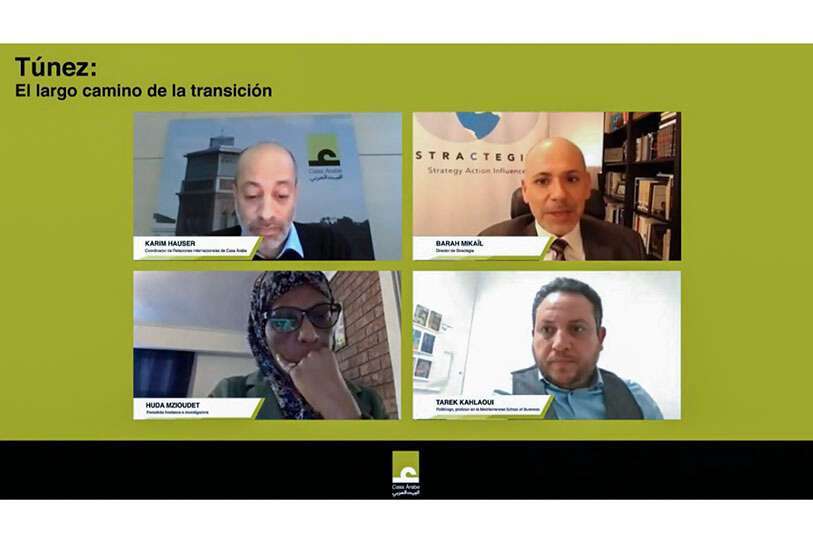
After three elections (2011, 2013, 2019), different parties came to power and disappeared. However, the strong presence of non-traditional populist politicians in the circles of power is something new and this makes political agreements even more difficult.
Since 2011, new populist actors have emerged who are unwilling to reach agreements and consensus with other political forces. All attempts to recreate the format of the 2013 National Dialogue. It does not exist in the political debate of these people and neither does the idea of political agreements, as was pointed out at the Casa Árabe event. So we are facing a dilemma, the National Dialogue is dead and we are facing a possible general crisis.
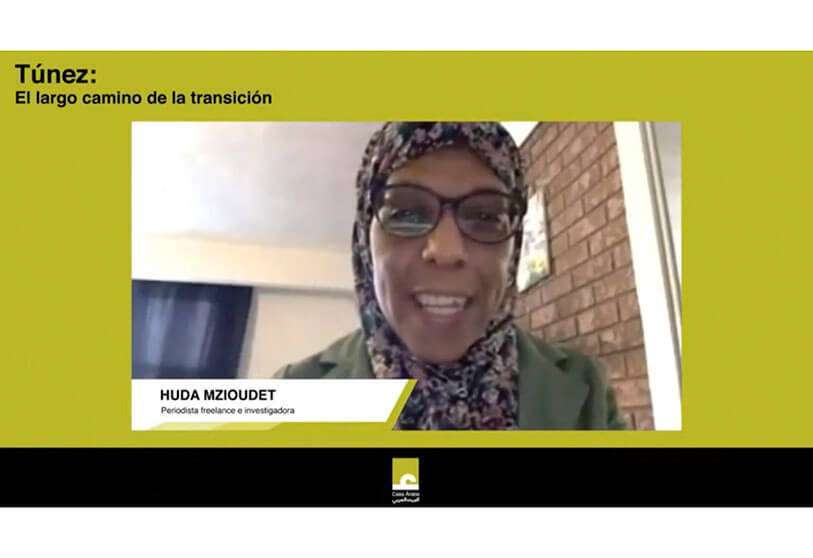
Trade unions have played a very important role and all organisations have a historical importance. Since 2011, Tunisian society has been mobilised in the streets; this civil society is disappointed because the political class is disconnected from the younger generations, as noted.
This civil society that is generated in disadvantaged neighbourhoods has started to become more and more politically active after 2011 and we see new faces appearing. For example, we see people from other ethnic minorities, religious minorities, racial minorities and also sexual minorities.
The so-called "lost generation" is the one fighting against the generation of the other generation, which was the generation of corruption. This civil society is fighting against this corruption and its great challenges.
Since the revolution ten years ago, Tunisia has made great strides towards democracy, but it is a long road to transition as many rights are still being violated. In addition to other factors such as the gaps between generations.
Huda Mzioudet referred, for her part, to the fact that the new generation does not feel that they belong to either the right or the left; they simply see themselves in the middle of a political confrontation on which they cannot agree.

